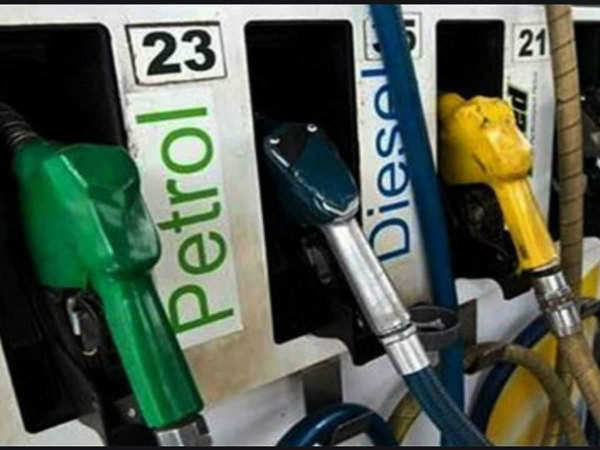For the first time in the history of India, diesel prices surpassed petrol prices in Delhi. The opposition and critics started attacking Modi government for a change that should have come many years ago, given the fact customers are increasingly going for petrol or CNG vehicles.
For the first time in the history of India, diesel costs more than petrol,– Diesel: ₹ 𝟳𝟵.𝟴𝟴 – Petrol: ₹ 79.76 Congratulations to 𝗕𝗝𝗣 𝗚𝗼𝘃𝗲𝗿𝗻𝗺𝗲𝗻𝘁 on their new achievement,” tweeted Aam Aadmi Party (AAP).
𝗙𝗼𝗿 𝘁𝗵𝗲 𝗳𝗶𝗿𝘀𝘁 𝘁𝗶𝗺𝗲 𝗶𝗻 𝘁𝗵𝗲 𝗵𝗶𝘀𝘁𝗼𝗿𝘆 𝗼𝗳 𝗜𝗻𝗱𝗶𝗮, 𝗱𝗶𝗲𝘀𝗲𝗹 𝗰𝗼𝘀𝘁𝘀 𝗺𝗼𝗿𝗲 𝘁𝗵𝗮𝗻 𝗽𝗲𝘁𝗿𝗼𝗹.
– Diesel: ₹ 𝟳𝟵.𝟴𝟴
– Petrol: ₹ 79.76Congratulations to 𝗕𝗝𝗣 𝗚𝗼𝘃𝗲𝗿𝗻𝗺𝗲𝗻𝘁 on their new achievement.
— AAP (@AamAadmiParty) June 24, 2020
In general, the rise in taxes on petroleum is painful to the consumer but questioning equal prices of petrol of diesel is stupid. In the International market, the prices of petrol (known as Gasoline in West) and diesel have very little difference of one or two dollars, with diesel costing more most of the time.
The price difference in the domestic market is due to different taxation. For the last seven decades, union government, as well as state governments, used to tax diesel less, as the usage of diesel is done primarily by the rural people.
As of now, the central government tax on petrol is 32.98 rupees per litre and 31.83 rupees per litre on diesel. If we take up prices of Delhi, where the rate of the diesel took over petrol prices today, the state tax on petrol and diesel is 17.71 and 17.60 rupees per litre respectively. Overall, 64% of the petrol price goes to tax kitty (central+ state), and 63% of the diesel price goes to the same, which means diesel is still taxed 1 per cent lower than petrol.
There is a clear cut bias against urban consumers in keeping the taxes high on petrol, as the middle class has increasingly turned towards petrol or CNG vehicles in the last few years.
Only the rich people who drive SUVs, rural consumers and transporters use diesel vehicles. “It’s an affordability challenge in the COVID-times. People are trying to save money and spiralling diesel prices are making them change their decision to petrol. Most argue why to spend more money on vehicles, which are more expensive,” says Amit Kaushik, the Managing Director of Urban Science, a US-based consultancy firm.
The government has to increase taxes on petrol if not diesel as it needs money for establishment spending.
But, an increase in petroleum taxes would have hurt already suffering middle-class urban consumer, and therefore, the government decided to increase the taxes on diesel, as rural economy is believed to perform better this year.
Farmers use diesel to run water tubewells in the ansence of electricity, and tractors- the primary equipment in modern farming has diesel engine. Most of the vehicles used by rural consumers have diesel engines, as they are better for rough terrains and poor roads. Mahindra and Mahindra, the largest seller of tractors which are primarily used in Indian villages is one of the largest manufacturers of diesel vehicles.
The central government (which imposes excise duty on petroleum), as well as the state governments (which impose a sales tax or VAT), has increased taxes on petrol and diesel in the last few months in order to generate revenue.
As two major sources of revenue for state and central government, direct taxes and GST, has dried up due to Corona virus-induced lockdown, the central government turned to excise on petroleum and state governments turned to sales tax on petroleum and alcohol to compensate for this.
